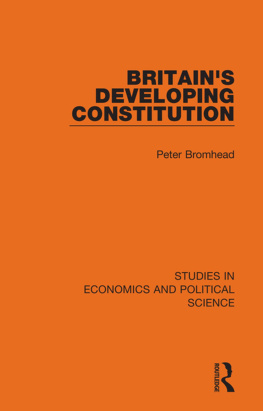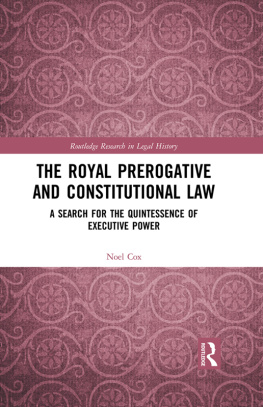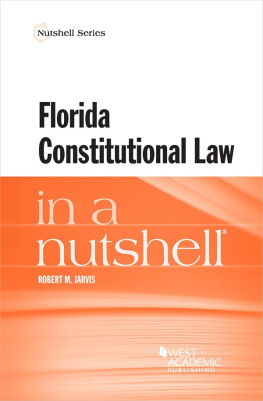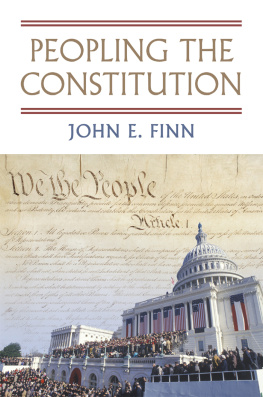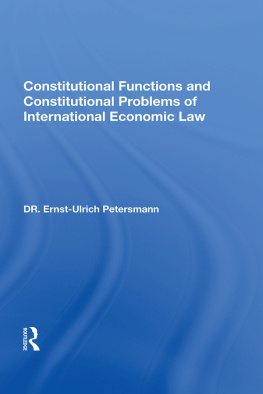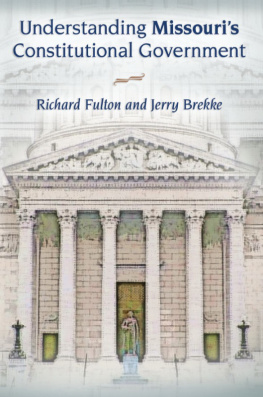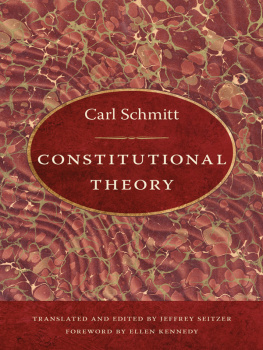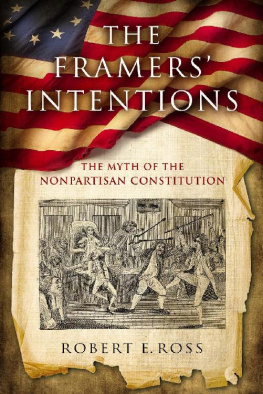Studies in Economics and Political Science
Volume 2
Britains Developing Constitution
First published in 1974 by George Allen & Unwin Ltd
This edition first published in 2022
by Routledge
2 Park Square, Milton Park, Abingdon, Oxon OX14 4RN
and by Routledge
605 Third Avenue, New York, NY 10158
Routledge is an imprint of the Taylor & Francis Group, an informa business
1974 George Allen & Unwin Ltd
All rights reserved. No part of this book may be reprinted or reproduced or utilised in any form or by any electronic, mechanical, or other means, now known or hereafter invented, including photocopying and recording, or in any information storage or retrieval system, without permission in writing from the publishers.
Trademark notice: Product or corporate names may be trademarks or registered trademarks, and are used only for identification and explanation without intent to infringe.
British Library Cataloguing in Publication Data
A catalogue record for this book is available from the British Library
ISBN: 978-1-03-212459-9 (Set)
ISBN: 978-1-00-322951-3 (Set) (ebk)
ISBN: 978-1-03-212630-2 (Volume 2) (hbk)
ISBN: 978-1-03-212639-5 (Volume 2) (pbk)
ISBN: 978-1-00-322551-5 (Volume 2) (ebk)
DOI: 10.4324/9781003225515
Publishers Note
The publisher has gone to great lengths to ensure the quality of this reprint but points out that some imperfections in the original copies may be apparent.
Disclaimer
The publisher has made every effort to trace copyright holders and would welcome correspondence from those they have been unable to trace.
First published in 1974
This book is copyright under the Berne Convention. All rights are reserved. Apart from any fair dealing for the purpose of private study, research, criticism or review, as permitted under the Copyright Act, 1956, no part of this publication may be reproduced, stored in a retrieval system, or transmitted, in any form or by any means, electronic, electrical, chemical, mechanical, optical, photocopying, recording or otherwise, without the prior permission of the copyright owner. Enquiries should be addressed to the publishers.
George Allen & Unwin Ltd. 1974.
ISBN 0 04 320099 0 hardback
ISBN 0 04 320100 8 paperback
Printed in Great Britain
in 10 point Plantin type
by Unwin Brothers Limited
The Gresham Press
Old Woking, Surrey
Preface
A constitution is the framework of norms and practices which define and regularise the management of political relationships. Some of the norms and practices are normally embodied in laws, and in nearly all modern societies (though not in Britain), the most important of these are embodied in a special law entitled the Constitution. The absence of a constitution need not be very significant; in any case the whole body of norms and practices is only one aspect of the political system, which is a much wider concept.
There is no limit to the types of information needed for an effective study of a political system: information, for example, about the countless different relationships of people with the process of production, about countless varieties of perceptions of those relationships, and about the influences which produce those perceptions. But the peoples relations with the production process, actual and perceived, are only a small part of the whole mass of factors which influence the political systems orientation. The totality of these factors is so great and so uncertain that any selection of elements for examination must involve a large subjective element.
This book will try to set out the main lines of the British constitutional system as it operates in the mid-1970s, concentrating on those aspects which concern the structure of power: the choice of persons for elite positions; the means of expression of public demands and aspirations through the system of representation; the means by which officeholders are made to account for their actions and policies. A study of a constitution must be mainly descriptive, though it may legitimately attempt to ask why the constitution is what it is, or why elements of it are what they are. Having suggested purposes or objections underlying particular forms or phenomena, it may evaluate the forms in relation to these purposes.
Evaluation is relatively easy with a constitution which has been produced at a given moment by the deliberate act of people then possessed of sufficient power to be able to prescribe a whole new set of rules and definitions of objectives. Their constitution has been made with a definite purpose, whether that purpose be to preserve rights to life, liberty and the pursuit of happiness, or to promote the nations success in attaining domination over others, or to keep the people firmly in subjection. Institutions so produced may be evaluated at a given time with reference to their success in achieving the proclaimed objectives.
When a constitution is not the product of any single act, evaluation is less easy because there is no prescribed set of standards by which to evaluate its working. The last English revolution was nearly 300 years ago, and even it did not claim to innovate; it merely claimed to declare the validity of some principles that had been violated: that power must be exercised to maintain order, but only subject to the will of Parliament, whose purpose was to discuss what had been done and what was to be done.
All government is concerned with choice: identifying and evaluating options, and choosing between them. This book deals with the framework of institutions, defining the manner in which the choosers, at different levels, are chosen, the limits which they must observe, and the checks to which they are subject. It deals with the nature and quality of discussion, and of the representative process on which that discussion is based. It is concerned with the machinery of government in its main political aspects, and for this reason it deals with the laws, conventions, practices and assumptions which comprise the political elements of the Constitution as it is in the mid-1970s. It pays particular attention to changes of the past few years, identifying changes and seeking reasons for them; it looks for reasons both for change and for lack of change; and where a purpose can be discerned behind a constitutional practice it assesses the consistency between the practice and its apparent purpose.
The British system is so lacking in precision that there is room for subjective elements in the choice of the materials for study. Written constitutions do not normally include provisions for the internal working of parliamentary assemblies, but in Britain some such rules (notably those dating from the seventeenth century) by which the House of Commons successfully established its special claim to authorise taxation and public expenditure, are commonly included in constitutional textbooks. But other internal parliamentary rules and usages, including some introduced very recently, are today even more important for any real discussion of the working system.
The internal rules of political parties may have an even less obvious place in a book about a constitution, but so long as the British political system works in such a way that either the Labour or the Conservative Party provides the government, the processes by which those parties provide for the choice of their leaders are essential to the process by which the effective chief executive is appointed to his office; omission of all discussion of these party practices leaves us with a mere skeleton.

